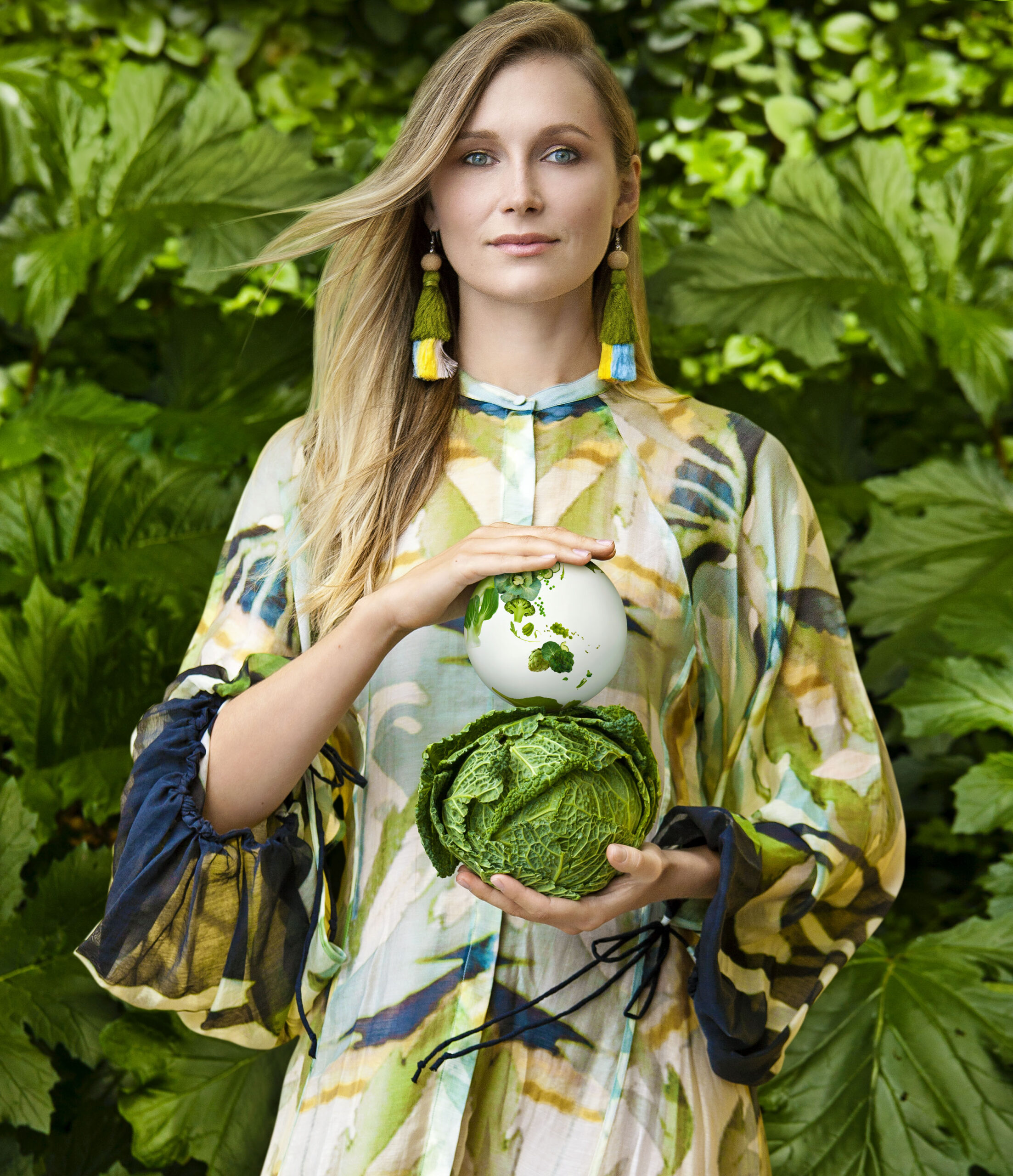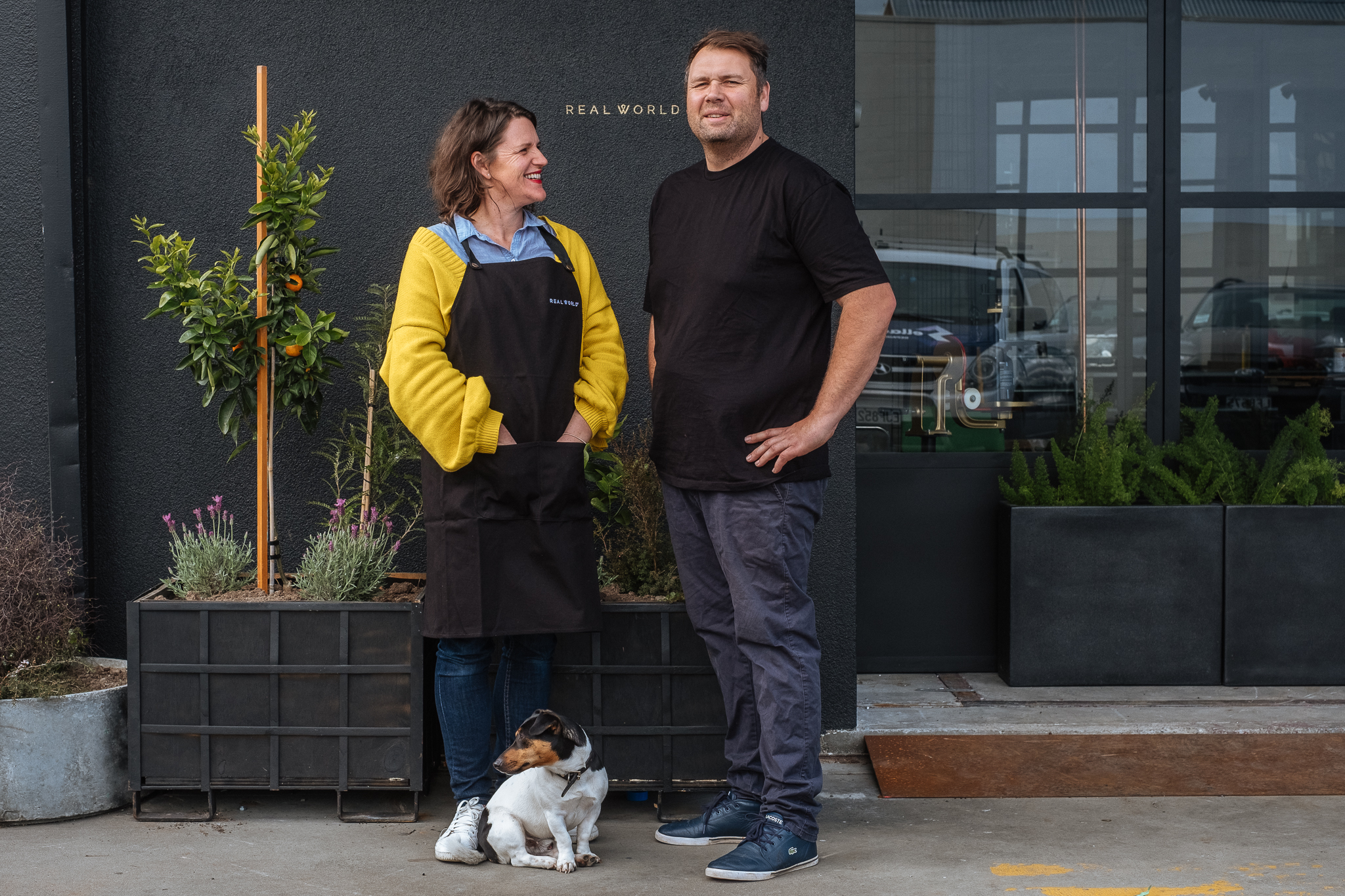Times are changing – an awareness of the negative impact of livestock farming on the environment means more people are looking to take a plant-based approach to eating. Good investigates the phenomenon.
Words Lindy Davis. Photography by Sara Orme
Ten years ago we made a family choice to eat less meat. The immediate reaction from people was one of surprise. Some even asked if illness was behind our decision. The idea that you might opt for nutritious alternatives to meat because it improved your chances of staying healthy was totally overlooked. A decade down the track and times have seriously changed. The traditional Kiwi diet of meat and three vege has been superseded by an increasingly varied offering of flexitarian food.
A number of forces have driven global consumers to find substitutes to meat and it’s clear alternative proteins are gaining traction. Trends like ‘meat-free Mondays’ and ‘dairy-free days’ have seen an increase in the availability of vegan food offerings in the New Zealand market.
Restaurants and cafés have joined the movement and most will now offer soy, coconut or almond as an alternative to cow’s milk. Our desire to eat healthier is also changing the supermarket, with long term predictions seeing more fresh and refrigerated foods and less processed and packaged food.
Gaining momentum
Alternative meats such as plant-derived proteins and ‘clean’ meat (cell cultures grown from animal protein in a lab) are fast becoming mainstream.
This focus is reinforced by the fact that companies such as Nestlé added Sweet Earth Foods to their portfolio. Even American giant Walmart has increased its offering of plant-based foods. Impossible Foods and Beyond Burger have revolutionised the alternative meat industry.
American start-up Memphis Meats, who plan to ‘grow’ beef, chicken and duck meat from animal cells without the need for agriculture, was recently given huge investment support from Tyson Foods, the world’s second largest processor of chicken, beef and pork.
Tom Hayes, president and CEO of Tyson, says his company’s decision to invest in Memphis Meats was simply because today’s consumers want more protein. With 30 per cent of Earth’s land dedicated to the production of livestock, providing an alternative that can bypass ethical and environmental concerns requires innovative thinking.
“Lab-grown meat holds the promise of requiring less land, wasting less water, limiting the spread of livestock disease and eliminating the need to slaughter animals,” says Hayes.
New Zealand and Australian companies like Bean Supreme and The Alternative Meat Co, who use plant-based soy proteins to mimic the flavour and texture of meat, are responding to consumer demand for vegan food.
Angel Food’s founder and CEO, Alice Shopland, says our eating habits are deeply ingrained and it’s not always easy to make sudden changes. She maintains that taking small steps to reduce meat intake and experimenting with the variety of new and exciting food options is a great start.
“People end up eating more adventurously when they go vegan. Personally, I think food should be fun and interesting. Most of my vegan friends are actually quite obsessed with food, sharing new recipes and ideas.”
She’s noticed a big swing in the last two years with her dairy-free cheeses; previously only stocked in specialist organic stores, they are now considered mainstream, available in supermarkets nationwide.
“People were reluctant to taste our cheese because they thought dairy-free cheese was just too weird. But there’s a massive shift away from dairy and customers love our products.”
New Zealand is still far behind in terms of growing plant-based foods and while we continue to pump out animal products, there is no plant-based industry or economy in place. Most ingredients for plant products are still imported, with very little infrastructure set up to deal with future production.
Like many in her industry, Shopland says conventional livestock farming has been a disaster on the environment. The excessive over-use of land, the polluted waterways and the impact that greenhouse gas emissions have had on the environment, is enough to convince any caring human to call for an alternative to meat.
Delicious alternatives
Glenorchy’s Aro Hā Wellness Retreat offers vegan-only fare to its clients. Head chef Jenny Lomas says the majority of guests are not vegan or even vegetarian, but the response is always overwhelmingly enthusiastic.
“Whenever I plan a menu, the first consideration is what we can harvest from the Aro Hā garden. People couldn’t imagine vegan food could be so delicious, varied and satiating.”
Menus are created around the retreat’s large seasonal garden. Lomas encourages guests to ditch processed foods as much as possible and opt for more fresh fruit and vegetables to improve gut health, support the immune system and enhance vitality.
“I completed my BSc in Nutritional Medicine and became a vegetarian a few years later. The negative effects of farming on the environment, animal suffering, and the obvious health benefits associated with giving up meat, were enough to convince me.”
Lomas says the food scene is rapidly changing with supermarkets and cafés in Queenstown offering a greater selection of vegan options.
Auckland’s newest vegan eatery, The Butcher’s Son, has quickly established itself with an innovative menu. The beetroot, tempeh, mushroom and dairy-free cheddar burgers make the traditional hamburger seem dull.
Owners James and Louise Logan were inspired to set up the restaurant after living in Bali for several years. “The vegan food there is phenomenal. We were totally motivated to bring more variety to the New Zealand market and convince people that eating plant-based food doesn’t equate to boring.”
She says there are a few key foods, such as legumes, tofu, tempeh, quinoa and pea protein, that can be incorporated into a whole foods diet to ensure all nutritional needs are met.
“People sometimes ask, ‘what can I eat as a vegan?’. I tell them I eat everything I always did, just vegan versions of it.”
She says the adverse effects that commercial livestock farming has had on the environment is one of the many compelling reasons to cut back or give up eating meat.
“There’s just no denying that a plant-based diet is the most environmentally friendly way to eat.”
Without doubt, we are seeing a global shift towards a more holistic approach to food. Consumers want more transparency when it comes to food sources and are scrutinising ingredients more closely.
What the people want
Growth in demand for plant-based food is increasing at a rapid rate, according to Noel Josephson, company director at Ceres Organics. He says the company is only just keeping up with requests for their latest product release of jackfruit, vegan mayonnaise and aioli.
“There is an overall shift in the way people are thinking; health trends, in particular longevity, but also interest in allergen-free and organic food. It’s about being more environmentally responsible. Every meal matters and helps shape the landscape we live in.”
Agriculture is responsible for almost half of New Zealand’s carbon emissions, amounting to 80,000 mega tonnes annually.
New Zealand’s heavy reliance on nitrogen-based chemical fertilisers for intensive farming has contributed to the decline in our waterways. Irrigation rigs take millions of litres of river water to saturate high country farms, accounting for about half of all fresh water use (around four times as much as personal use in homes). Around 1000 litres of water is needed to produce a single litre of cow’s milk, along with the associated run-off and environmental waste.
The United States Department of Agriculture says intensive farming is accountable for 80 to 90 per cent of US water consumption.
“We’re seeing the impacts of climate change locally, with droughts and flooding, and realising we’ve reached a tipping point in our environmental limits,” says Josephson.
New Zealanders have become more discerning, eager to see the people behind their brands to ensure their ethics and values are aligned with their own.
Coyo Organic brand manager Jonathan Knight maintains that we still lag well behind Europe when it comes to technological development and food trends.
Coyo’s story dates back to Fiji in the 1950s, where the founder, Henry Gosling, spent his childhood collecting coconuts from plantations and converting them to milk and food for family meals. The family combined their love of coconut and passion for health, to create a coconut milk yoghurt.
“Almost every single part of the coconut can be turned into a saleable product, so from a sustainability angle it’s one of the top crops,” says Knight.
He says reducing our meat intake and switching to a plant-based diet is undeniably the best way forward.
The majority of land use in New Zealand is used for primary production (agriculture and forestry). Conventional farming is responsible for 50 per cent of our greenhouse gas emissions, heavily polluted waterways and depleting the land of native bush.
According to Urban Agriculture researcher Tobias Heeringa, our main economic drivers of dairy and meat will become less relevant in the future. He says urban agriculture, vertical farming practices and lab-grown food are creating a bigger groundswell globally and there’s a great opportunity for New Zealand to get on board.
“I hope we are smart enough to see the value in embracing more of a plant-based diet, which will create innovative industry and produce exportable plant foods, such as meat analogues and high-health crops.”
Currently, the United States takes 50 per cent of New Zealand’s beef exports and most of it goes into burger manufacturing. Agriculture farming also takes up a third of New Zealand’s total land mass.
“The mindset has to change. We need to find ways to treat the land with respect – it’s essential for the long-term health and biodiversity of New Zealand’s ecology,” says Heeringa.
Making changes
A recent Beef and Lamb NZ report concedes that various forces, including health and environmental concerns relating to climate change, are driving governments, consumers and investors to look for alternatives to red meat.
The future of farming may more likely be in naturally raised, grass-fed, hormone and antibiotic-free beef, which commands a higher export premium.
Although much of New Zealand’s heritage and economy is tied to dairy and beef farming and the traditional mindset has been strongly ingrained in favour of meat, agriculture and future of food specialist Rosie Bosworth says we are in the process of a revolutionary change.
The name game
The term ‘flexitarian’ (flexible vegetarian) was coined in the mid-90s and refers to a person who eats a predominantly vegetarian diet, but who will occasionally eat meat or fish. A good flexitarian will make sure, when they do eat meat, that it is ethically sourced and friendly to the environment.
“The younger generation, essentially the cornerstone of our future, are more open to embracing alternative foods. Whether it’s paleo, dairy-free or a plant-based diet, the millennials are way more curious than the elderly population.”
As access to more palatable and price-competitive plant-based products increases, Bosworth says the switch to protein alternatives will be easier.
She thinks lab-grown meat is an innovative industry to watch. Lab meat products are not farm-raised or from live animals and farmers in the US have challenged whether the products can legitimately be called ‘meat’. The U.S. Cattleman’s Association have filed a petition with the U.S. Department of Agriculture, wanting an official definition for the terms beef and meat. It’s very clear that livestock farmers feel sufficiently threatened by the lab meat industry.
Better for the planet
The UN has openly acknowledged that quite apart from being the leading cause of resource consumption in the environmental degradation of our planet, livestock farming plays a major role in global warming. The statistics are sobering.
Around 60 billion farmed animals are killed every year globally; 40 million of which are farmed in New Zealand. Agribusiness (cattle grazing and soy production) is the leading cause of Amazon rainforest destruction and species extinction. It also contributes to ocean dead zones, deforestation, soil acidification, spread of disease and compromised human health.
Dr Michael Klaper, a physician at California’s TrueNorth Health Centre, says all the nutrients that humans actually require are available in the plant kingdom. “The purpose of cow’s milk is to feed baby calves. I tell my patients not to eat baby calf growth food, unless you have a tail and four legs.”
Howard Lyman, former cattle rancher and author of Mad Cowboy, says there’s no way the planet can continue to support people eating meat every day. “We could feed every human being on the planet if we took all the feed and grain that goes into feeding animals and turned it into food for humans.”
New Zealand is one of the highest consumers of fertiliser per land mass. As part of the net zero emissions bill, the government has promised to increase tree planting and support agricultural innovation.
Canadian filmmaker James Cameron recently urged New Zealanders to eat less meat and consume less dairy in order to reach our climate goals.
“Reconsidering how we eat offers us hope, empowering us with choice over what our future planet will look like.”
Given that dairy and meat are New Zealand’s first and second largest exports with a combined worth in 2017 of more than 17 billion dollars, it will take some serious motivation to make the desperately needed changes.
Landcorp chief executive Steve Carden says New Zealand farming has reached its economic, social and environmental limit and agriculture needs a new strategy that’s more sustainable and environmentally friendly.
“The way people consume food is changing and plant-based alternatives to meat and dairy are a new entrant which needs to be taken seriously,” says Carden.
American author and foodie Michael Pollan sums it up seamlessly, “Eat real foods, not too much, and mostly plants.”





